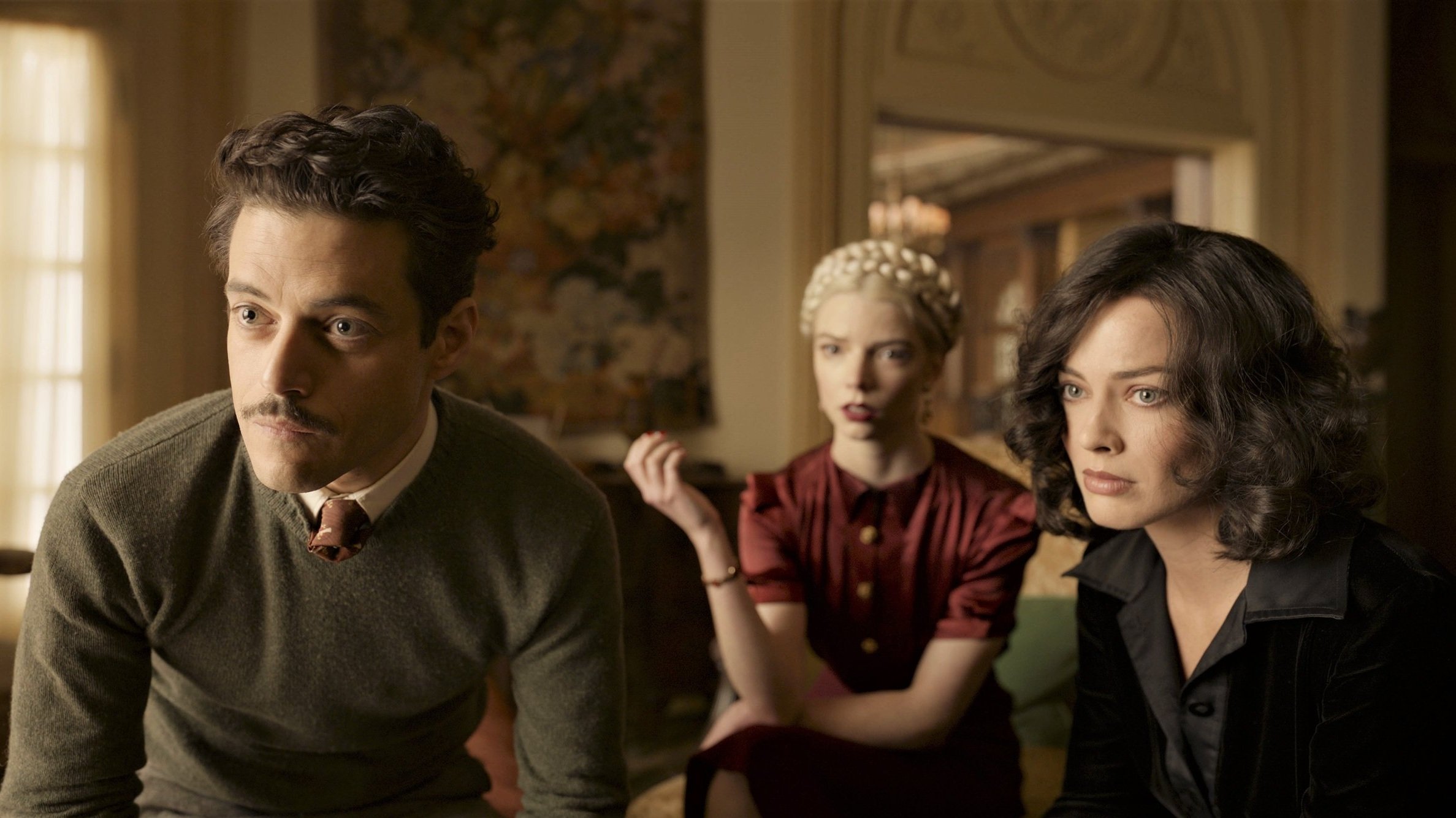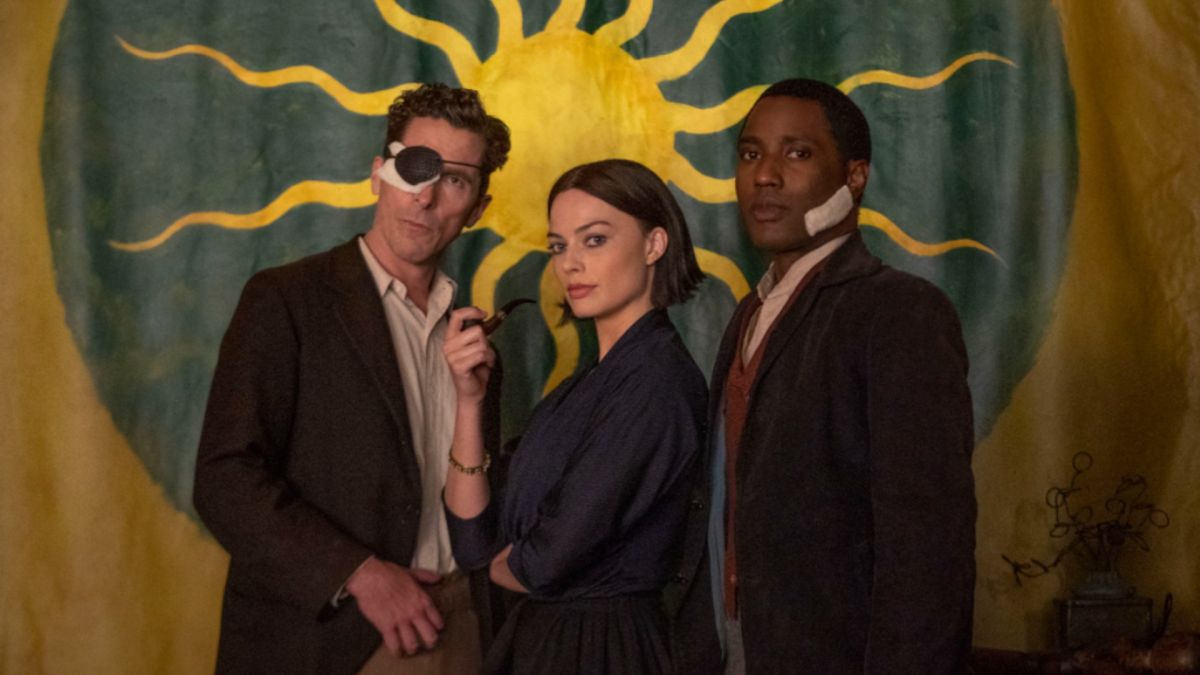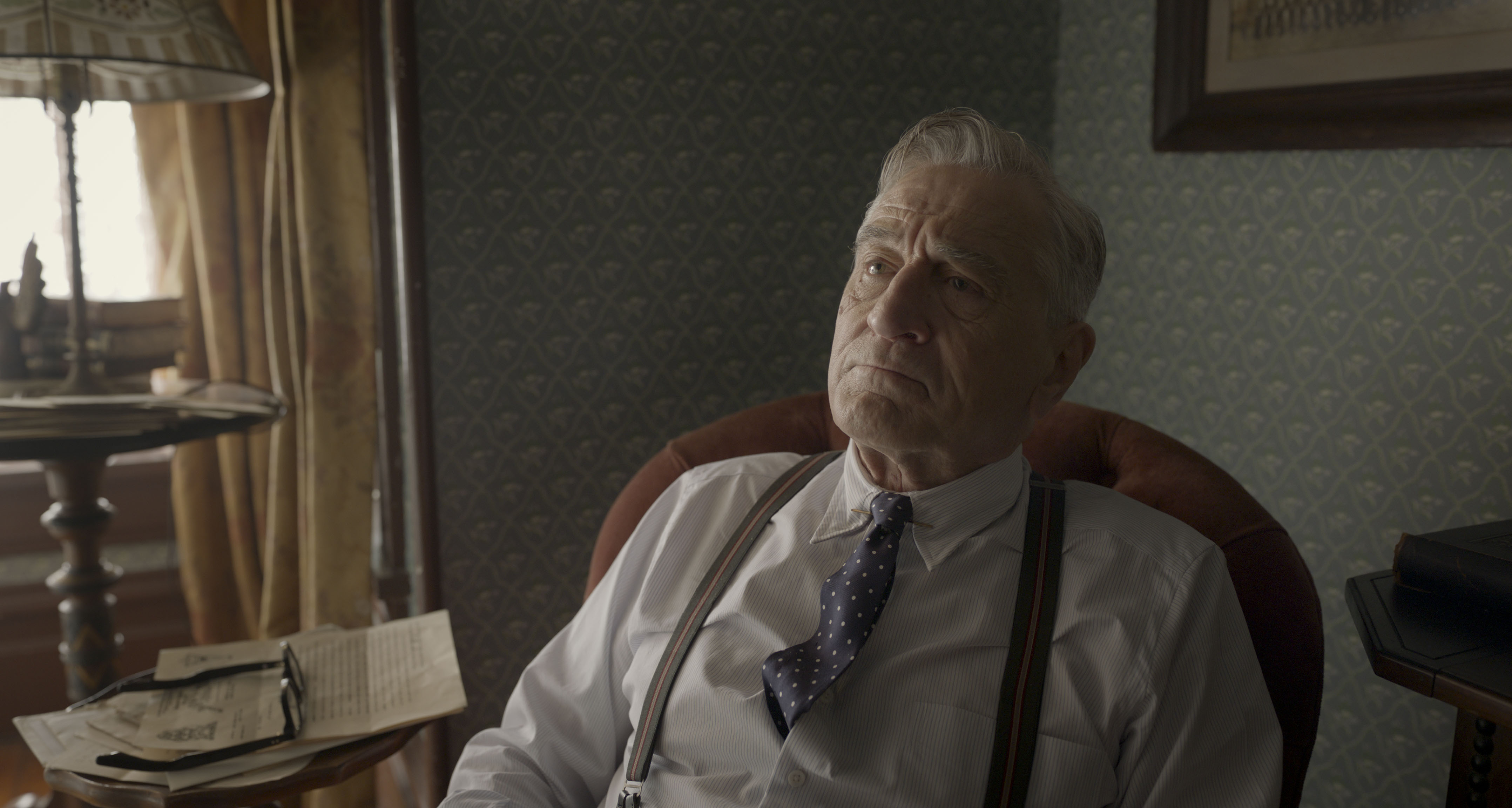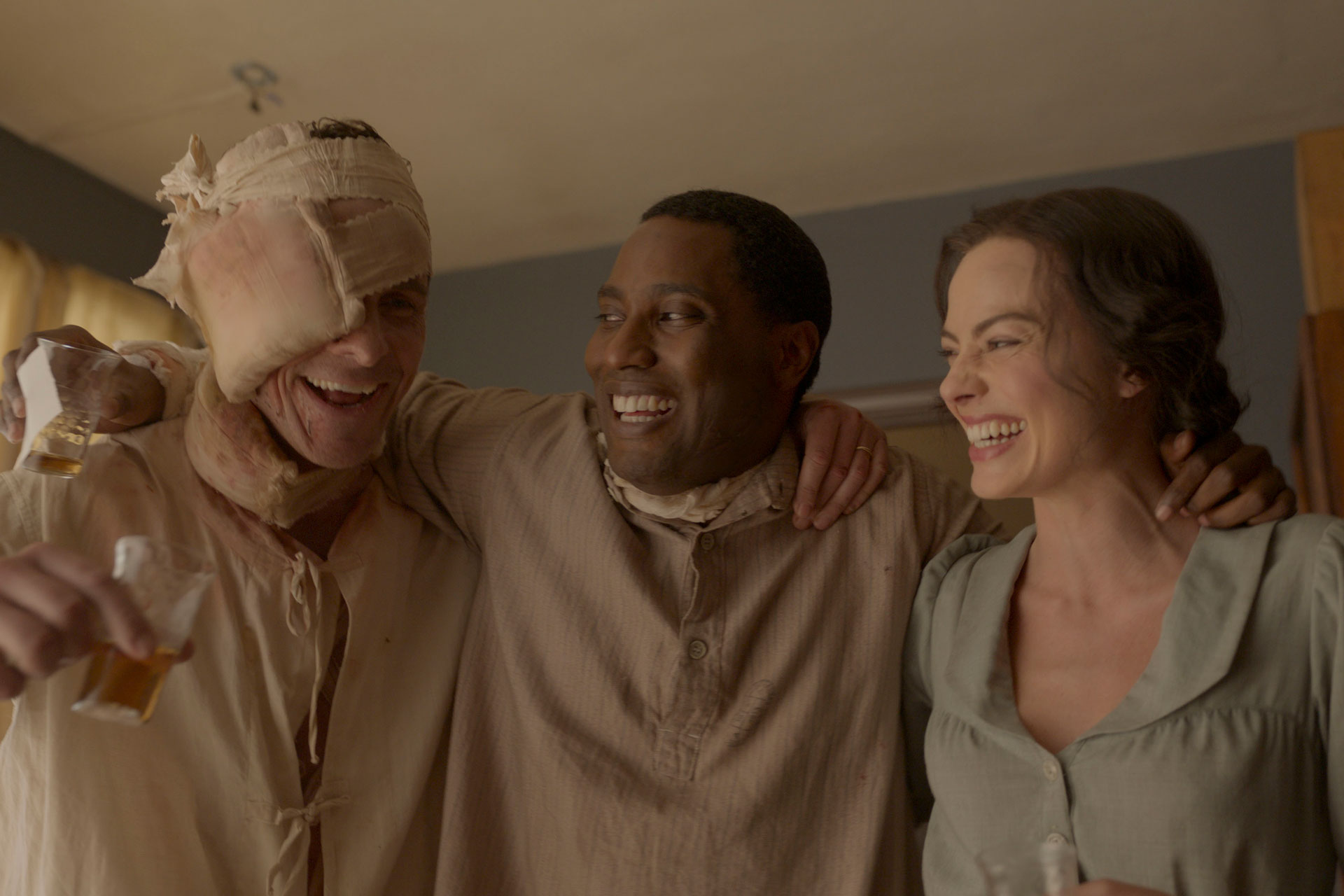There are enough movie stars in Amsterdam, David O. Russell’s first film in seven years, to make Wes Anderson issue a cease-and-desist order. One wonders how he accumulated them all, given that every one of them must have seen that video of him chewing out Lily Tomlin on the set of I Heart Huckabees. In any case, they’re here and they’re eager to work with him, even if his last film, Joy, was a severe disappointment. And they pop up with such regularity that each new heavy-handed character introduction is an instance of one-upping the previous. “Now we’ve got Anya Taylor-Joy! Now we’ve got Rami Malek! Now we’ve got Robert De Niro!” And so forth.
If Amstersdam sounds exhausting, it is. Each of these stars, no matter their wattage, appears game for whatever it is Russell is trying to do here. But their sheer multiplicity is a good metaphor for the countless number of directions in which this film wanders. It is highly distractible, and worse than that, it feels lacking in stakes and momentum – not a complaint you should have in a film where a jumble of disparate characters tries to prevent the U.S. from being overthrown by fascists. Narrative digressions eat away at an already ungainly story to give us something truly tedious, which is salvaged only slightly when Russell hurriedly assembles the components into a coherent conclusion.
Frequent Russell collaborator Christian Bale is our first of the many stars. With the verbal tics he displays whenever he’s trying too hard, Bale plays Burt Berendsen, a doctor returned to New York City after losing an eye in World War I. The rest of his face is mostly intact, but that’s not the case for many of his patients, other veterans whom plastic surgery can give some semblance of a presentable visage. One of those patients is his best friend Harold Woodsman (John David Washington), a lawyer. They met 15 years ago during the war, when Burt was handed a leadership role in Harold’s regiment of Black soldiers, who also include Chris Rock – making his usual brand of outrageous observations that befit the early 21st century more than they befit the early 20th century. He’s not in the movie very much, though.
Nor is Taylor Swift, as anyone who questions her acting ability will be glad to hear. Her Liz Meekins conscripts Burt and Harold to perform a speedy autopsy on her father (Ed Begley Jr.), who formed their regiment, and who may have been poisoned on his just-returned boat back from Europe. Before they have a chance to figure out what sort of conspiracy may be happening here, Liz is pushed under a car, and Burt and Harold are on the run, accused by bystanders of doing the deed themselves.
For characters on the run in a situation already involving two deaths, Burt and Harold sure don’t look over their shoulders very much. An extensive back story – which involves Harold’s Amsterdam love interest, Valerie (Margot Robbie), who made the third in their trio – gives way to a series of private eye-type interactions with a frankly astonishing number of characters, played by the likes of Michael Shannon, Mike Myers, Zoe Saldana, Andrea Riseborough, Alessandro Nivola and Matthias Schoenaerts, in addition to those already listed. The fact that they are free to make these movements (and that each movement is hijacked by some other sub plot), without any fears of being pushed in front of a car themselves, is further astonishing.
Amsterdam seems to have been modelled on American Hustle, Russell’s last hit, in that both are complicated period pieces in which (mostly) true stories are embellished by the writer-director’s attempts at whimsy and Christian Bale playing a Character with a capital C. What kept Hustle far more manageable was that it was essentially a four-hander, with Amy Adams, Jennifer Lawrence and Bradley Cooper accompanying Bale, and everyone else clearly part of the supporting cast. Amsterdam ostensibly has a similar central grouping of characters, but the sheer number of other characters suffocates, stalling any forward motion the narrative tries to find. And while that movie produced laughs, this one creates the optimal conditions for hearing a pin drop.
Blame the seven-year layoff, but Russell just has too many ideas for one movie. There’s the theme of post-war trauma as exemplified in the pasting together of faces, with Bale constantly misplacing eyeballs, which has an offshoot involving experimental drugs. There’s an artistic thread featuring Robbie’s character, who makes art from the shrapnel she extracted from soldiers as a war nurse. There are plenty of thoughts on racial relations, with the Black soldiers forced to wear French uniforms to disentangle them from the white regiments, and with Valerie and Harold’s stillborn attempts to carry on an interracial relationship. There’s a peculiar fascination with birdwatching that is mostly a red herring. There’s what eventually reveals itself as a fascist cabal that’s in league with the rise of Hitler and Mussolini. And throughout there are these odd little tangents about the quest for love, in which the routinely stilted dialogue becomes baroque, severing whatever little relationship this all has to reality.
Plenty of fine materials are wasted in the effort. As just one example beyond the cast, Emmanuel Lubezki is the cinematographer, having recently been considered among the very best cameramen working. Russell gives him a series of static setups, featuring three or four talking heads, with which he can really do nothing. Because the visuals are not providing us what we need, and even the dialogue falls short, Russell regularly uses voiceover, mostly from Bale but with a few lines from Robbie sprinkled in here and there as well. Voiceover is already the last recourse of a narrative that doesn’t work, and when it is parceled out to multiple characters at random, it is even more obviously pasting over the holes in the script.
Amsterdam does find something of an organising principle as it approaches its conclusion. But our only conclusion as viewers is that Russell is still spinning out after Joy. Early in his career, he made one of the finest examples in the past quarter century of a film that considered the serious consequences of war while finding light-hearted elements to relieve the tension. That was Three Kings, and in retrospect it looks like a high watermark for a director who was once a real alchemist. Lately, the chemicals have gone to his head. To reference another dynamite film from earlier in his career, Russell flirted with disaster on this one and lost.
Amsterdam is currently playing in cinemas.



